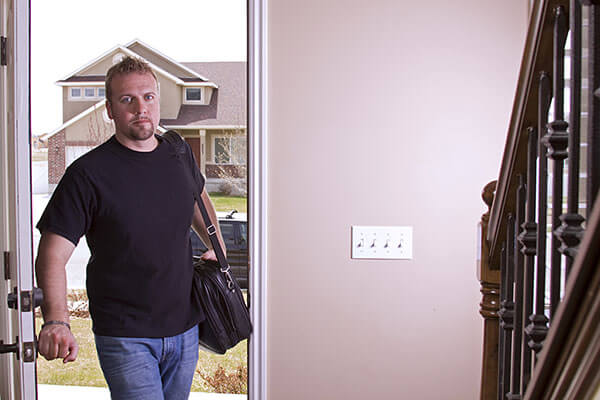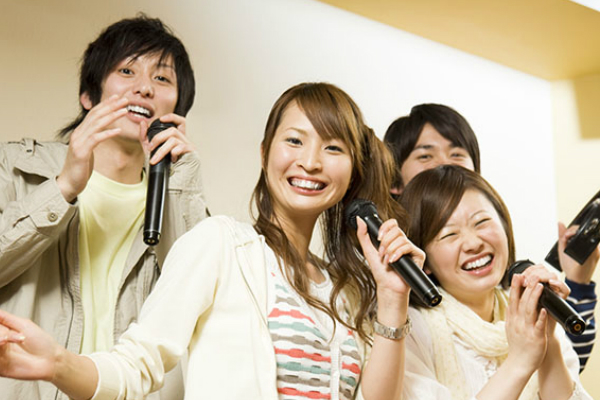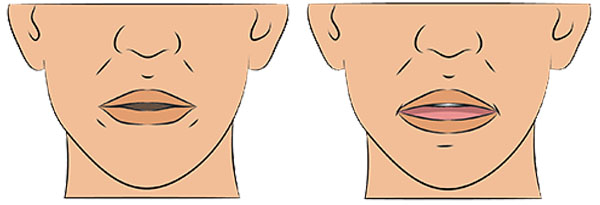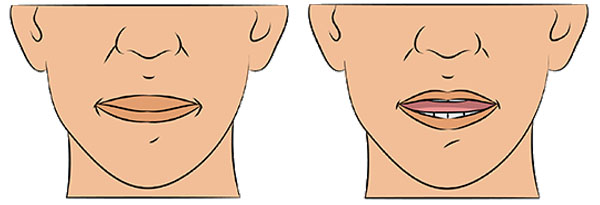I can talk about after-work activities.일 후의 행동에 대해 말할 수 있게 된다.
INTRODUCE
Some people go home right after work. Other people like to do activities after work.일 후, 곧바로 집에 돌아가는 사람도 있으면, 뭔가 하는 것을 좋아하는 사람도 있습니다.

PRESENT
STEP A VOCABULARY
I. Listen and repeat.듣고 반복합시다.
 do after work일 후에 |  take [thing] lessons[물건] 수업을 받다 |
 get home귀가하다 |  go for a drink술 마시기 |
 eat out외식을 하다 |  make dinner저녁 식사 만들기 |
II. Which of the things above are fun? Which are boring?위에서 즐거운 것은? 어색한 것은?

fun

boring
III. Practice reading the words.단어를 읽는 연습을 하자.
 /w/ |  /p/ |
|---|---|
work 일 | fork 돼지고기 |
will 의사 | pill 타블렛 |
we 우리 | pea 완두콩 |
STEP B GRAMMAR TIP
Use who , what , when , where , and how to ask questions.
who, what, when, where, how를 사용하여 질문을 할 수 있습니다.UNDERSTAND
SPEAKING
The school day is done. Saori and her coworker Masa are chatting in the teachers' lounge.
학교 하루가 끝났습니다. 사오리와 동료 마사는 직원실에서 이야기하고 있습니다.
 |
- Masa:
So, Saori, what do you do after work?
- Saori:
I usually eat out with my best friend, Catherine. Then, we go to karaoke.
- Masa:
Sounds fun! Where do you usually eat out?
- Saori:
Well, we go to different restaurants. But our favorite place is the Pearl Café.
- Masa:
The Pearl Café? That's far from your home, right? How do you get home?
- Saori:
I take the bus. Catherine usually takes a taxi.
- Masa:
Wow, your best friend's rich! (laughs) Anyway, do you want to go for a drink tonight?
- Saori:
Sorry, maybe next time. I have plans tonight.
TRIVIA
When people invite you somewhere, it's rude to just say no. Instead, you should use the phrases sorry, maybe next time or sorry, maybe another time .
A: Do you want to see a movie?
X B: No.
A: Do you want to see a movie?
O B : Sorry, maybe next time.
누군가에게 초대를 받았을 경우, 「아니오」라고 말하는 것만으로는 무례합니다. 그럴 때는, 「sorry, maybe next time. ( 미안해, 또 이번)」 또는, 「sorry, maybe another time.
A: 영화를 보지 않겠습니까?
X B: 아니.
A: 영화를 보지 않겠습니까?
O B: 미안해, 또한 이번에.

PRACTICE
STEP A EXERCISE
Unscramble the words in parentheses to make a question.
괄호 안의 단어를 정렬하여 질문 문장을 만듭니다.
ex. (you / when / do) take ikebana lessons?
→ When do you take ikebana lessons?
- (when / they / do) eat out?
- (she / does / where) go after work?
- (who / you / do) go to karaoke with?
- (does / how / she) get home?
- (do / what / you) do after work?

STEP B EXERCISE
Complete the conversation using the words in the box. Not every word will be used.
상자의 단어를 사용하여 대화를 완성하세요. 모든 단어를 사용하는 것은 아닙니다.
- Student:
_____ do you usually do after work?
- Tutor:
I like to try new restaurants for dinner.
- Student:
Nice! _____ do you eat out with?
- Tutor:
I eat out with my husband.
- Student:
_____ do you usually go? Do you eat around here?
- Tutor:
No, we usually go to Ebisu. There are lots of good restaurants there!
- Student:
Oh, nice! _____ do you get there? Do you take the train or walk from here?
- Tutor:
We usually take the train. We're actually going to try a new restaurant tonight. Do you want to go with us?
- Student:
Sorry, maybe another time! I have to work late tonight.

CHALLENGE
Challenge 1
You are on a first date.
첫 데이트 중입니다.
Answer your date's questions about what you usually do after work. Ask your date questions as well.
일을 마치고 언제나 무엇을 할 것인가에 대한 상대의 질문에 대답합시다. 상대방에게도 질문을 합시다.
Today's grammar tip
- who
- what
- when
- where
- how
 |
Challenge 2
Discuss your ideas.당신의 의견을 말하자.
 If Time
If TimeAllows
FEEDBACK
LESSON GOAL ACHIEVEMENT
4
Very GoodCould complete the task with ease
3
좋은Could complete the task with some clarifications
2
FairCould complete the task with additional instructions
1
PoorCould somehow complete the task with difficulty
PERSONALIZED FEEDBACK
- RANGE표현의 폭
어휘를 어느 정도 사용할 수 있을까 - ACCURACY정확성
문법을 올바르게 사용할 수 있는지 여부 - FLUENCY유창함
부드럽게 말할 수 있는지 여부
No comments:
Post a Comment